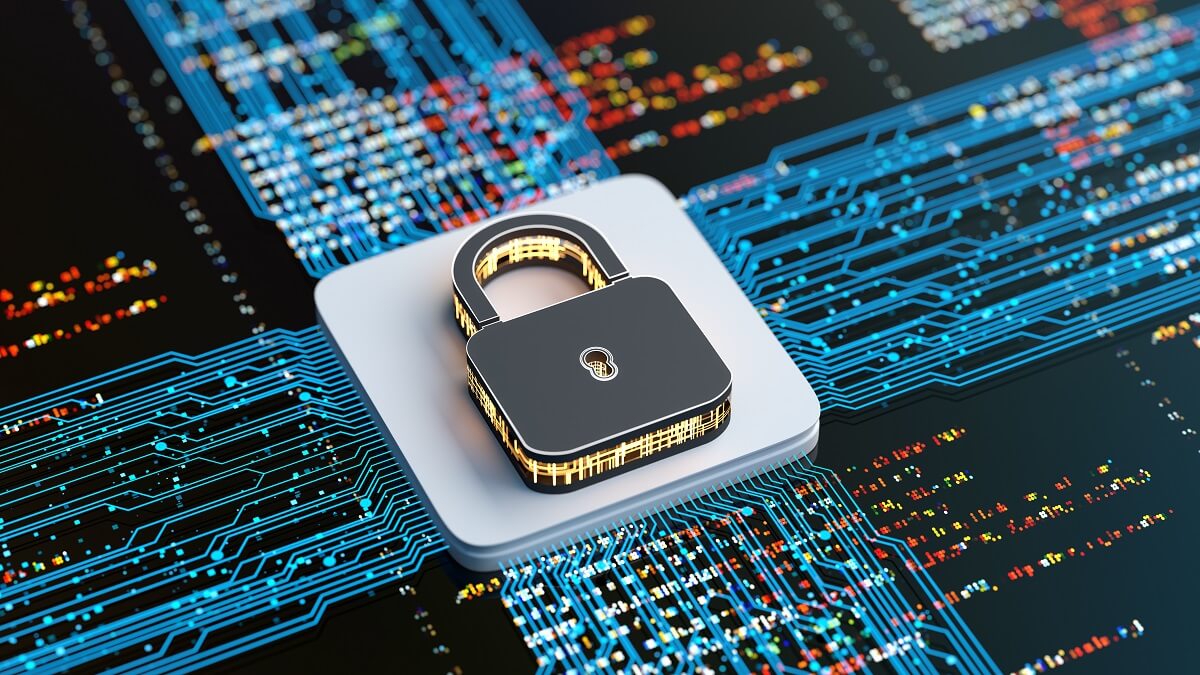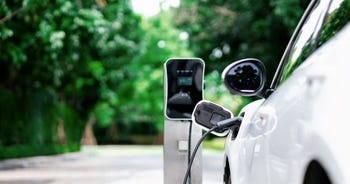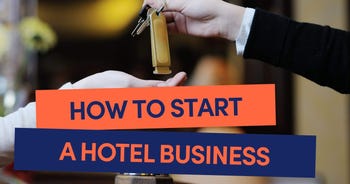How to implement a successful business security system
No matter whether you’re running a small business or a big brand, keeping your business secure online and in person is crucial.
As some businesses struggle to keep their heads above water, security can end up taking a backseat. But, protecting your company with an effective security system will prevent potential threats and help put your mind at ease.
To help you find a security system that’s right for your business needs — and understand how it can benefit your company — our handy guide can introduce you to the world of security.
What does it mean to keep your business secure?
Keeping your business secure can mean different things to different business owners. From CCTV to fire alarms, security doors and water detectors, an effective security system will monitor the property, deter threats and lessen the impact of incidents that can affect your business.
As other issues crop up, security can sometimes be forgotten about. Because of this, many security systems are implemented as a reaction to a crime that’s taken place on the business property, rather than as a preventative or precautionary move.
Essentially, implementing security measures should be one of your main priorities in order to prevent issues, reduce their impact and help resolve them.

What is a commercial security system?
Commercial security systems can encompass a wide variety of different buildings and uses, with everything from offices and shops, to hotels, restaurants, warehouses and more. Basically, any building that gains income in some way can be classed as commercial.
What’s the difference between physical and virtual security?
There are two main types of security; physical and virtual. Unless your business is solely run online, you’ll most likely be using a combination of the two to keep your business secure.
Physical security
Physical security is the protection of data, hardware, software, networks and personnel from physical actions and events that can cause serious loss or damage to a business.
This can be everything from:
- Fire
- Theft
- Vandalism
- Floods
- Natural disasters
- Terrorism
Physical security is made up of three components: access control, surveillance and testing.
Access control
Access control can limit and control what access people have to sites, facilities and materials and usually includes ID badges, keypads and security guards.
Surveillance
One of the most important components for both prevention and post-incident recovery, surveillance refers to the technology, personnel and resources that companies use to monitor activity. This can include heat sensors, notification systems and patrol guards.
Testing
When it comes to the unity of an organisation, testing has become increasingly important. Disaster recovery plans and fire drills are usually the biggest types of testing as it identifies how well a company recognises, responds to and contains a threat.
It’s important to have proper physical security in place because physical attacks are perhaps the most fundamental kind of attack.
Virtual security
Virtual security, on the other hand, is security solutions that are software-based and are designed to work within a virtual IT environment. Instead of being tied down to a device like hardware-based security, virtual security can be deployed anywhere in the network and is usually cloud-based.
Even if your employees are cautious, your business isn’t immune to different types of threats and strategies that hackers use to get into your network. So, you’ll need to make sure that you have antivirus software, safe servers and VPNs on your network. To find out more about protecting your business online, check out our guide to internet security.
What different parts make up a business security system?
To make sure that you have an effective security system, the components you choose have to be suited to your business. Here are some of the most important and popular security systems that you’ll most likely need for your business.
CCTV systems
Typically the first thing that comes to mind when you think about security systems, CCTV can be invaluable for businesses. Some of its benefits include:
- After-hours surveillance
- Theft prevention
- Active threat identification
- Provide evidence should need be
Thanks to technology nowadays, a lot of camera systems allow remote access to their video feeds making it possible to check on your business even when you’re away.
Fire detection
Minimising the threat that fire poses is crucial for protecting your business, its assets and, most importantly, your staff.
Fire sensors can detect heightened temperatures or smoke and will trigger alarms when they detect an unusual reading. Typically, an alarm is sent to the security monitoring system which can then alert the police or fire department.
If you own the property, it’s a legal requirement to ensure that the property meets safety standards. Breaching these standards could result in a hefty fine or a prison sentence depending on the severity.
Identity verification systems
For businesses where confidentiality and security are paramount, identity verification systems will allow only approved employees to enter the building or specific areas. This then prevents unauthorised individuals from gaining access to areas that they shouldn’t be in — and it also means that you can track which employees are where in the building.
Instead of using physical keys, employees instead can use:
- Photo identification — Simply scanning the face will grant access into the building or areas.
- Smart card or key fobs — By using a card reader that’s installed at an access point, the employee has to scan their card or fob to gain access.
- Fingerprint scanners — Gone are the days of forgetting access cards. Many businesses choose to opt for fingerprint scanners as it's much easier.
- Identification numbers or passwords — A simple 4-digit pin or number that you’re assigned when you join the business can be your key.
Security doors and shutters
Whether you need an external door to protect your premises from the outside world or internal doors that can withstand fire, there’s no doubt that security doors and shutters add an extra layer of protection.
A security door or shutter is not only hard to break into, but in many cases, it stops thieves from even trying to get onto your property.
Intruder alarms
Intruder alarms give businesses peace of mind that their commercial building is protected, even when you’re not in the building. Even without the alarms being triggered, intruder alarms are proven deterrents to potential burglars as it’s much harder to gain access.
Alongside intruder alarms, modern systems may also integrate panic buttons and smoke screens to bolster the protection the alarms provide.
Who needs a business security system?
Essentially, every business should have a security system in place to prevent the worst from happening.
Businesses that have valuable stock, merchandise or machinery — such as jewellery stores, banks, electronic shops and even retail and restaurants — are some of the most prominent businesses that may benefit from a security system. Plus, even if you do have a security system, it might be time for a well-deserved upgrade.
What are the benefits of a security system for your business?
There are lots of benefits to security systems; not only does it provide peace of mind but it can protect your business and lessen the impact of any negative incidents. From observing your
building in real-time to catching potential thieves, here are some of the biggest benefits a security system can have on your business:
Provides access to remote video monitoring
Most wireless cameras use the same IP (internet protocol) to transmit data that is used across private and public networks. This means that it’s easier for business owners to access the cameras remotely, either through a computer, tablet or smartphone.
Prevent unauthorised access
Good alarms and identification systems are great ways to prevent unauthorised access to areas that the public, or your employees, shouldn't be in.
Knowing who comes and goes from your business premise is essential for effective business security. With a professionally installed system, you’ll be able to quickly identify and track those who enter the building.
Protect your business from fire
It takes only a few seconds for a fire to catch, which can potentially leave your business in flames. Most commercial security systems now have built-in smoke detectors, meaning as soon smoke is detected, the relevant authorities can be notified.
What to consider when selecting your business security system
Finding the right security system can be a challenge. The best way to find the solutions you’ll need is to conduct a security review or audit. This will identify the vulnerabilities, weak spots and high-value assets that you need to protect.
It’s best to ask yourself:
- What assets and areas need to be monitored and protected?
- Should certain areas be off-limits unless employees are authorised to be there?
- What does the current system protect?
- What weak spots exist within the current system?
Answering these questions will help you make a more informed decision about the exact measures you need to take.
How much does a security system cost?
As with all security systems, it’s hard to make a generalised cost as a lot of factors go into deciding which system is best — such as the size of your business, the number of security components you’ll need and the area that your company is located.
Generally speaking, a good security system can set you back anywhere between £500 - £1,000, depending on what type of features you’re looking for.
How to keep your business secure with Bionic
Deciding on the right security system for your business is no easy feat, but it can be extremely beneficial when properly implemented. From CCTV to putting your employees’ minds at ease, business security is a must.
But even if you have all the necessary protection in place, there's no guarantee that the worst won't happen. That's why it's important to have insurance in place. Speak to the Bionic team today to find out more about business insurance or check out our handy guides to help you with all of your business needs.
We can also help you with a range of other business essentials, including energy, finance, phone and broadband.







